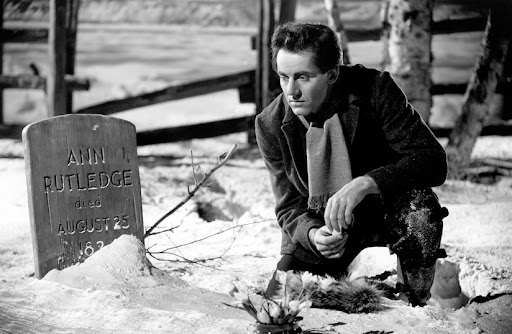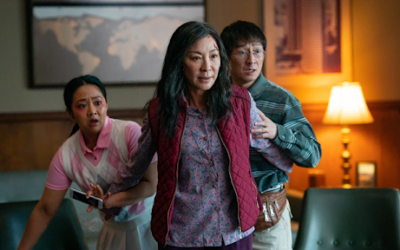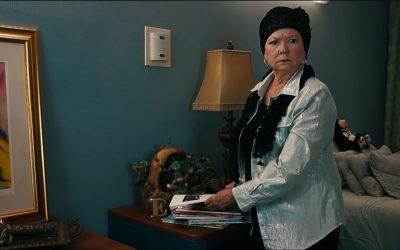Source: TCM
Presidents Day may not get the same degree of esteem as other federal holidays like Memorial Day or Veterans Day – whereas those days are dedicated to people that are almost universally revered, presidents can be a lot more divisive in terms of politics – but that doesn’t mean there isn’t any value to be found within it. First established in 1879 and referred to as Washington’s Birthday in commemoration of George Washington, the first President of the United States, the holiday was amended nearly a century later to celebrate all presidents past and present, now taking place every third Monday of February. Nowadays, most people think of the holiday as little more than a day off from work or school, but that doesn’t mean one can’t use the opportunity to look back at how our culture has come to view any one of the forty-five people that have served as Presidents and their legacies. Some of these individuals are still revered as true American icons, others are significantly less fondly remembered, and plenty of them are still debated as to how well they actually served this nation. As is often the case with most subject matter, cinema can be a vital tool in not only reflecting a society’s view of a given individual, but perhaps even shaping it if the film is of great enough quality. Sure enough, there have been plenty of films made over the years that depict the life and career of a given president and offer a compelling look into who that person was, whether it’s a more positive portrayal or a more negative one. There have been plenty of presidents over the nation’s nearly two-and-a-half decades of existence, and even more films in which they can be seen as their lead protagonists. Here are some of the ones that we appreciate the most:
Young Mr. Lincoln (1939) and Lincoln (2012) – in their respective portrayals of Abraham Lincoln, the nation’s 16th president, these two different films could really not be more different. The former depicts a pre-presidency Lincoln working as a lawyer and acts as a (completely fictionalized) courtroom drama in which he defends two young men accused for a murder they didn’t commit; the latter is a bit more rooted in real-life historical events as it revolves around Lincoln’s efforts to abolish slavery during the peak of the Civil War. Given the films are separated by over seven decades of cinematic history, the vast differences in how these films are presented shouldn’t be all that surprising, yet put together, they help create a solid, if not entirely historically accurate, portrayal of one of America’s most revered presidents. It’s only natural that two of cinema’s most acclaimed filmmakers – John Ford and Steven Spielberg – were the ones to have directed these films, as it is for two of cinema’s most acclaimed actors – Henry Fonda and Daniel Day-Lewis – took it upon themselves to play Lincoln and did so to great effect. Both films are solid enough on their own, but when paired with one another, they result in a satisfying and more complete look into the life of President Lincoln.
Nixon (1995) – whereas Abraham Lincoln is still considered by many to be one of America’s greatest presidents, Richard Nixon, the 37th President of the United States, is widely regarded today as being anything but great, forced to resign from the position in 1974 as a result of the Watergate scandal. Given the scale of such a scandal, it would be easy for a filmmaker to double down on Nixon’s more negative qualities and make him out to be an outright villainous character, but that’s not what director Oliver Stone (who also helmed 1991’s “JFK” and 2008’s “W.”, two other films based on real-life American politics) has chosen to do with this 1995 historical drama. Highlighting the various complexities that made up Nixon’s character, Stone makes a surprisingly admirable effort to portray Nixon as a somewhat respectful figure, yet one who was nonetheless heavily flawed and ultimately brought down by his determination to stay in power no matter the cost. Anthony Hopkins received an Academy Award nomination for his portrayal of Nixon in this film, one that helped further cement Stone’s ambitious effort to paint the disgraced president as a more complicated man than most give him credit for.
Primary Colors (1998) – released before the presidency of its main subject was even finished, Mike Nichols’ adaptation of “Primary Colors: A Novel of Politics”, which focused on the 1992 presidential campaign of 42nd U.S. President Bill Clinton, must’ve seemed like a rather questionable film to come out during this specific period of time. However, with the Monica Lewinsky breaking out shortly afterward, the film ultimately proved to be surprisingly timely, and looking back on it nearly twenty-five years later, it does provide some fascinating insight into a man who certainly appeared to mean well, yet often found himself being held back by many of his own personal indulgences. John Travolta might seem like a strange pick to play Clinton, but he somehow slips into the role with a shocking amount of ease, though it’s Emma Thompson who shines even brighter as his wife Hillary, giving a performance that results in one of the most sympathetic portrayals of the First Lady to date.
Thirteen Days (2000) – for many presidents, their legacy can often be boiled down to a single historical moment and how they choose to handle what could be some of the most important decisions of their lives. For John F. Kennedy, the 35th President of the United States, that moment was the Cuban Missile Crisis, an event that could’ve ended with mass nuclear destruction had it gone worse than it actually did. Though few can even know what it was like to have navigated such a borderline catastrophe, this political thriller from director Roger Donaldson does come fairly close, and much of why the film works is how well it gets into the mind of the president who had to carefully guide the country through this time of uncertainty. Though told primarily through the point of view of Kevin Costner’s Kenneth P. O’Donnell, a top White House assistant, it’s Bruce Greenwood who stands out most in his portrayal of Kennedy, showing a more reserved and uncertain side of the President that most may not be that familiar with, albeit one that grounded him a way that made it possible for him to avert what might have been the end of the nation.




